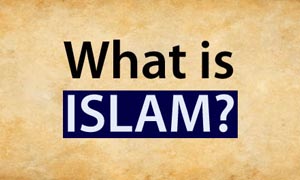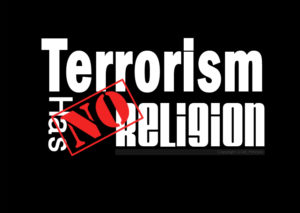Islam – A Short History
Genre – History, Religion
Author – Karen Armstrong

Islam. You can love it or have a strong distaste for it, but you simply can’t ignore it. The extreme antagonism of its critics is matched only by the extreme faith of its 1.6 bn believers.
24% of the world believes in Islam. That’s one in every four people, making it the second largest religion after Christianity. In 50 of the 196 countries, muslims are in majority. And Islam is the fastest growing religion in the world with its percentage of world population having doubled in the last century.
For non-believers, Islam’s popular imagination is often of an extreme faith that promotes terrorism, authoritarian government, female oppression, and civil war. However, Karen Armstrong, a former Catholic nun and an expert in comparative religion, suggests that the modern fundamentalist strain might not be the real Islam. And the western world may be thoroughly misplaced in its judgement on Islam.
She quotes extensively from the Holy Quran and the Prophet’s life to bolster her case. The Quran teaches that “war is such a catastrophe that muslims must use every method in their power to restore peace and normality in the shortest possible time” (Quran 8: 16-17). And when Prophet Muhammad took over Mecca, “not a single drop of blood was shed” and “none of the Quraysh was forced to become muslim“. Indeed for the first 200 years of Islamic history, “conversion was not encouraged“.

Is it Islam’s shortcoming if terrorists, in pursuit of their political ambitions, quote selectively from the holy text and try to portray a religious sanction. It is tempting to use ISIS as a poster child of everything that is wrong in Islam but isn’t it fundamentally about political power? Terrorists have no religion. Period. Far from helping the Islamic cause, these terrorists (at worst, 100,000 across the world?) have made each of the 1.6 bn Muslims being looked at with suspicion and created a global hysteria against Islam. “Hurting the very cause they profess to protect”.
Karen talks of the dilemma of the ordinary muslim. From “world’s most powerful political bloc in the fifteenth century” to being reduced to a dependent bloc and a colony of the european powers. And this leads to a ghetto mentality where everything western is seen with suspicion. Fundamentalism, reminds Karen, “is a global fact and has surfaced in every major faith in response to the problems of modernity.” It is a reaction against promises made but not kept and secular leaders often being hypocrites and corrupt. Iran’s Khomeini is a case in point. He started as a protestor against the cruel and unconstitutional policies of the Shah of Iran (progressive and secular ruler, but thoroughly corrupt, lacking popular support and seen as a stooge of US). Khomeini enjoyed grass-root support but was exiled and his protestors (mainly young students) were massacred. This led to the Iranian revolution, supported by not just the rightists but also modernists and leftists, which overthrew the Shah and installed Khomeini. Over time, however, “like all fundamentalists, Khomeini’s vision was also distorting”. The taking of American hostages, the suppression of all dissent, coercion in religion were against the teachings of Khomeini’s own spiritual mentor. This was less about religion and more about consolidation of power after the revolution. When Khomeini issued his fatwa against Salman Rushdie, 48 out of 49 member states of Islamic Conference condemned it.

Karen speaks extensively of the reformist Sufi movement within Islam, “trying to reproduce within themselves that state of mind that made it possible for Muhammad to receive the revelations of the Quran… They learnt to concentrate their mental powers while breathing deeply and rhythmically.” Mystics like Yazid al-bistami peeled away the layers of egotism and felt God telling them: “I am through thee, there is no God but Thou”. That discipline of mind is true religion.
While I am a big fan of Karen and have even joined her Charter for Compassion, I do feel that sometimes she goes too soft. At least today, there is a real violent face – whether as ISIS or Taliban – which we cannot ignore or fully justify in the name of Muslim suffering in Palestine. Indeed, these have killed more muslims than non-believers. We should boldly and unequivocally criticize this as harshly as we criticize all other forms of fundamentalism. The common complaint is that we do not hear enough loud voices from within the muslim community taking the lead in the criticism of this “wicked abuse of religion“.
Why read this book? In today’s world where religions have become so polarized, and yet are forced to co-exist, we simply have no other option but to deeply understand each other. Distrust and conflict are easy temptations but only lead to a downward spiral. We need to share our planet with 1.6bn muslims and “hence need a just appreciation and understanding of Islam.” Karen rightly guides us to focus on the deeper spiritual meaning of all religions.

 This information will never be shared with third party
This information will never be shared with third party
Interesting recap Nishant, I think the key tenet for the book is derived from the final section where Armstrong moves out of her history mode and provides a profound analysis of the contemporary Muslim situation in the West. They would like to participate in the modern world whilst remaining faithful to the central tenets of their own religious understanding. This is not always compatible and a myriad of issues combine to make a thoughtful solution quite difficult to implement.